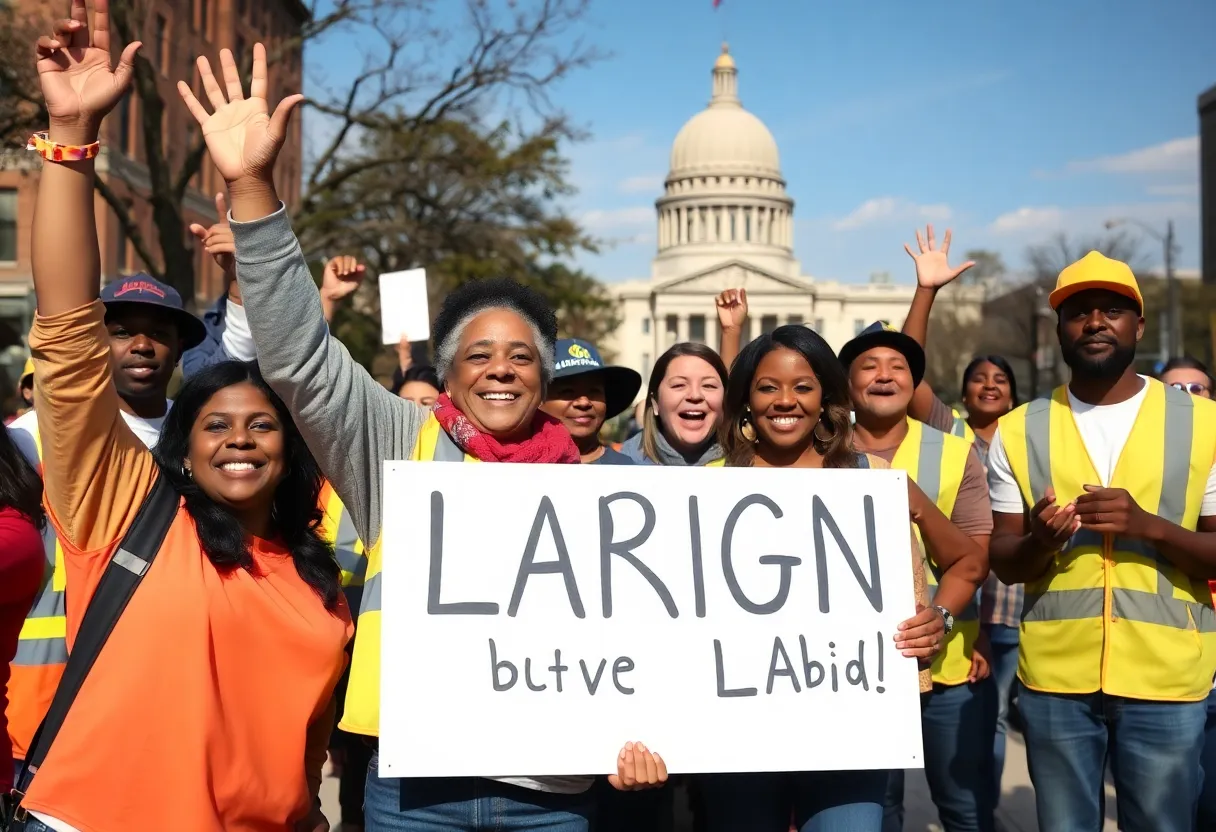News Summary
Michigan lawmakers have come together to reach a bipartisan agreement affecting minimum wage and sick leave policies. This compromise introduces a gradual increase in the minimum wage, set to rise to $10.56 in January 2025 and eventually reach $14.97 by February 2028. Additionally, the wage for tipped workers will begin increasing as well. With a significant budget of $83 billion and a ruling from the Michigan Supreme Court prompting these changes, both workers and businesses must prepare for an evolving labor landscape.
Exciting News from Michigan: Bipartisan Agreement on Minimum Wage and Tipped Wage Legislation!
Changes on the way for Workers and Businesses
In the bustling halls of the Michigan Legislature, where decisions affect thousands of lives, lawmakers have come together to forge a bipartisan compromise on key issues affecting minimum wage and sick leave policies. With the clock ticking towards a crucial deadline on February 21, 2025, these developments promise significant changes for both workers and employers in the Great Lakes State.
The Budget Talks and Delays
In tandem with these legislative changes, it’s worth noting that Michigan lawmakers recently passed an eye-popping **$83 billion budget** for the upcoming fiscal year. However, there’s a bit of a snag when it comes to education funding, causing a delay in the finalization until June 27, 2024. But don’t worry! The focus on the budget hasn’t overshadowed the pressing need for fair wages and better employee treatment.
A Legal Ruling Sparked Legislative Action
A big push for change came after a ruling by the Michigan Supreme Court, which indicated that the **GOP-controlled Legislature** acted illegally back in 2018 when they rushed to adopt and modify voter initiatives linked to minimum wage and sick time policies. As a result of this ruling, the original initiatives will start taking effect beginning February 21, 2025.
What to Expect with the Minimum Wage
Before the dust settles, there are some exciting new figures to be aware of! Starting January 1, 2025, the minimum wage will be raised to **$10.56** an hour, followed by a jump to **$12.48** as of February 21, and then a gradual increase to **$14.97** by February 2028. It’s a thrilling time for those who earn the minimum wage, as many hopes are resting on these positive changes.
Tipped workers, who currently earn a minimum of **$4.01** an hour, are also set for a significant transformation. The wage for tipped jobs will rise to **$4.74** on February 21, 2025, moving toward a future goal where it equals the minimum wage by **February 2030**.
Proposed Bills and Their Fallout
Lawmakers introduced some proposed bills in hopes of raising the minimum wage to **$12** by 2025 and **$15** by 2029; however, these bills didn’t pass through the Senate. Instead, a modified version of one proposal succeeded, maintaining the original timeline while ensuring the transitions are manageable for businesses.
The recently passed package includes House Bill 4002, which makes amendments to sick leave regulations. Notably, it exempts certain workers and businesses with fewer than **50 employees**, aiming to strike a delicate balance between protecting workers and keeping small businesses afloat.
Business Concerns
But it’s not all sunshine and rainbows! The restaurant industry has raised alarms, fearing that phasing out the **tipped minimum wage** could lead to price hikes on menus and fewer tips for workers. This concern is shared by organizations like the **Michigan Restaurant and Lodging Association**, which have referred to these impending changes as a potential crisis.
Economic experts suggest that raising the minimum wage may result in better worker retention and even higher tips for servers in the long run. It seems that while some anticipate challenges, others perceive ripe opportunities for a flourishing workforce.
What’s Next?
The two bills are tied together, meaning they both need to be signed by Governor Gretchen Whitmer for them to take effect. Luckily, Whitmer has expressed a willingness to approve the negotiated measures, so fingers crossed for workers in Michigan!
As these changes take shape, small businesses will get a bit of breathing room, as the accrual of sick time for them is deferred until **October 1, 2025**. Plus, new rules will allow businesses to create tailored policies, clarifying what’s needed if someone is sick for more than three consecutive days.
Looking Forward
As we look ahead, it’s clear that Michigan stands on the brink of substantial labor law changes. With the new wage structure taking effect and adjustments to sick leave policies, **workers** and **businesses** alike will need to navigate this evolving landscape. Keep an eye out for updates, because the future of work in Michigan is shaping up to be brighter than ever!
Deeper Dive: News & Info About This Topic
- WXYZ: Lawmakers Pass Compromise Bill on Michigan’s Minimum Wage and Sick Leave
- Free Press: Debate on Michigan Tipped Minimum Wage Hike
- WZZM13: Michigan Senate Passes Bipartisan Bill on Tipped Minimum Wage
- Fox 2 Detroit: Michigan’s New Minimum Wage Increases
- Lansing City Pulse: Michigan Legislature Seeks Votes on Minimum Wage Bills
- Wikipedia: Minimum Wage








